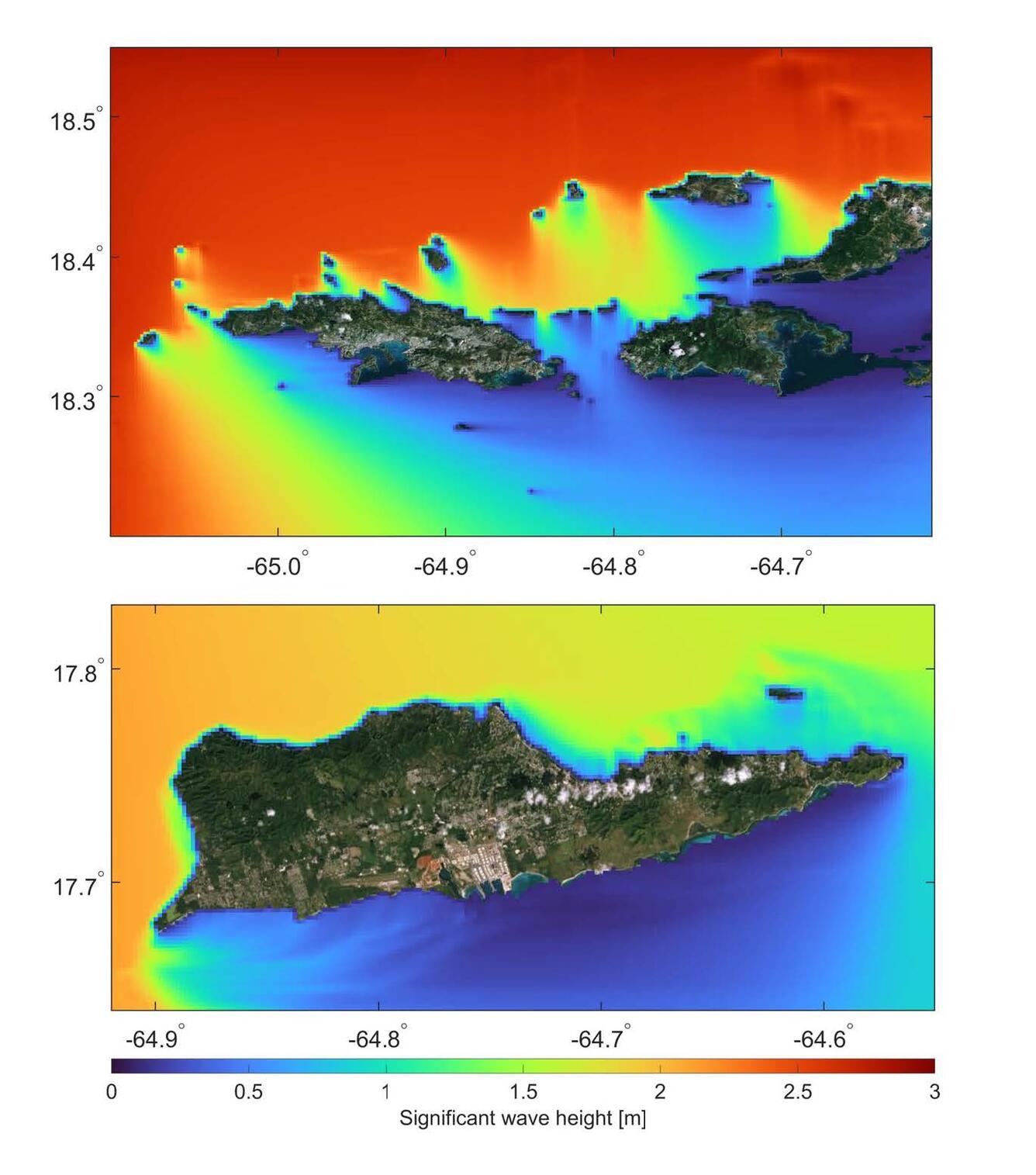Restoring Coral Reefs for Coastal Hazard Risk Reduction in the U.S. Virgin Islands
A new study from the University of California, Santa Cruz, The Nature Conservancy, and USGS quantifies the social and economic benefits that coral reefs provide to the coastal communities of the United States Virgin Islands (USVI).
The research, focusing on the islands of St. Croix, St. John, and St. Thomas, underscores the importance of coral reef restoration in reducing the risks of wave-driven flooding and other natural hazards.
Coral reefs act as natural breakwaters, dissipating the energy of incoming waves and thereby reducing the impact of storms and flooding on coastal communities. However, factors such as climate change, pollution, and overfishing have led to significant reef degradation, increasing the vulnerability of these areas to natural disasters.
The study, which combines engineering, ecological, geospatial, social, and economic data, provides a detailed valuation of the protection offered by coral reefs. It estimates that these natural barriers safeguard more than 481 people and \$31.2 million worth of infrastructure annually, based on 2010 U.S. dollar values.
The study offers benefit-to-cost analyses that compare the hazard risk reduction benefits of coral reef restoration against the costs of restoration. These analyses also denote where different types of restoration—whether fully ecological or hybrid in nature—can have benefit-to-cost ratios greater than 1, which would allow for federal pre-disaster mitigation or post-disaster recovery funding to be used for coral reef restoration to protect coastal communities. This protection is particularly significant as reef degradation continues to threaten the safety and economic stability of coastal areas.
The researchers highlighted the potential for targeted coral reef restoration projects to mitigate these risks effectively. By identifying specific locations where restoration could have the most significant impact, the study offers a spatially explicit roadmap for stakeholders and decision-makers. This approach ensures that resources can be allocated efficiently to maximize the benefits of restoration efforts.
"Coral reef protection and restoration are not just environmental concerns; they are crucial to the safety and economic well-being of the USVI’s coastal communities," said USGS Research Geologist Curt Storlazzi, a co-author of the study. "Our analysis provides a rigorous evaluation of how, where, and when restoration efforts can be financed using federal hazard risk reduction funding to help build coastal community resilience against the impacts of climate change."
The findings can inform future policies and funding decisions related to coastal management and hazard mitigation in the USVI. By quantifying the protective value of healthy coral reefs, the study provides scientific support and crucial economic valuations for coral reef restoration projects.





